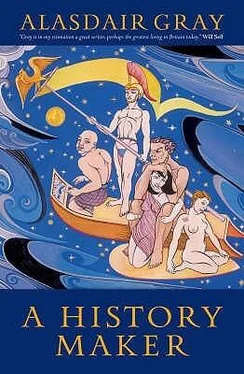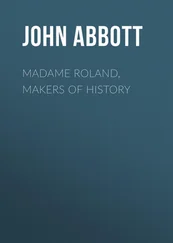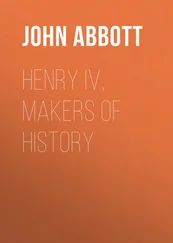In the fine old English Tory times;
Soon may they come again!
The good old times for cutting throats
that cried out in their need,
The good old times for hunting men
who held their father’s creed,
The good old times when William Pitt,
as all good men agreed,
Came down direct from Paradise
at more than railroad speed.
Oh the fine old English Tory times;
When will they come again!
In those rare days, the press was seldom
known to snarl or bark,
But sweetly sang of men in pow’r,
like any tuneful lark;
Grave judges, too, to all their evil deeds
were in the dark;
And not a man in twenty score
knew how to make his mark.
Oh the fine old English Tory times;
Soon may they come again!
Those were the days for taxes,
and for war’s infernal din;
For scarcity of bread,
that fine old dowagers might win;
For shutting men of letters up,
through iron bars to grin,
Because they didn’t think the Prince
was altogether thin,
In the fine old English Tory time;
Soon may they come again!
But Tolerance, though slow in flight,
is strong-wing’d in the main;
That night must come on these fine days,
in course of time was plain;
The pure old spirit struggled,
but its struggles were in vain;
A nation’s grip was on it,
and it died in choking pain,
With the fine old English Tory days,
All of the olden time .
The bright old day now dawns again;
the cry goes through the land,
In England there shall be dear bread —
in Ireland, sword and brand;
And poverty, and ignorance,
shall swell the rich and grand,
So, rally round the rulers
with the gentle iron hand,
Of the fine old English Tory days;
Hail to the coming time!

CHAPTER FIVE — THE HENWIFE
Page 126.
powsoudie = sheep’s head broth.
drummock = raw oatmeal with milk.
kebbuck = home-made cheese.
farle = a three-cornered scone or bannock.
Page 136.
The stove was called the Aga.
Aga was the trade name of the cast-iron stove manufactured in the twentieth-century period. It burned household waste besides coal, wood or peat and was a thrifty source of heat for household uses.
We should all be gangrels.
Kittock’s faith in the superiority of possession-less people may seem the sort of romantic perversion sung in the ballads of Johnny Faa and The Raggle Taggle Gipsies . It was also entertained by Greeks, Jews, early Christians, Mohammedans, Buddhists, Hindus, Jean-Jacques Rousseau, George Borrow and many others who found natural justice incompatible with state-enforced laws, the earth which supports us at variance with owners who evict natives from it, often murderously.
Page 138.
wheen = several; a few; a number which is sufficient when used approvingly, deficient when used disparagingly.
Page 142.
The men exchanged tobacco pouches.
This custom started in the seventeenth century when tobacco was imported to Europe in so many states that almost every smoker had his favourite blend, but thought it friendly and interesting to offer and taste other blends.
[The men] discussed whether the ten thousand years of civilization should be called The Dark Ages because of their greed and cruelty, or The Middle Ages because they had achieved some splendid things . Breaking the past into easily labelled sections is a habit as ancient as thought. Ways of doing so is a brief account of mankind.
PREHISTORIC folk split time into two: the dream time or days of the gods when earth, sky, creatures and the first people were made; the human time which flowed from then. They believed that the earlier time was eternal, that gods in the sky, the neighbourhood and underground still helped the sun and seasons and human generations return. Before civilization destroyed such people their past seemed a continually renewed present extending forever through their children.
EGYPT AND CHINA were the longest-lasting nations of the historical era and both existed because farmers on fertile plains had combined to share large irrigation systems. Both systems got armies to defend them from marauding gangrels, a class of civil servants (priests or mandarins) to run them, one big landlord (Pharaoh or Son of Heaven) to unite the whole. In both nations the civil servants invented pictographic writing and by keeping no record of earlier times mythologized their state by teaching that the one landlord, his surveyors and tax collectors were incarnations and agents of gods who had made the universe. This meant that everbody else must serve them forever. The past was divided into periods named after the presiding Pharaoh or Son of Heaven.
GREEKS AND HINDUS split the past into four:
1 — The Golden Age when people were content to gather food without cultivating it and had weather which let them live without clothes and houses.
2 — The Silver Age, a colder time when they began living in caves and thick bushes, cultivating the soil and domesticating animals.
3 — The Bronze Age, when they formed settlements which sometimes raided each other.
4 — The Iron Age, when cities, navies, trading, warfare and every social evil were perpetrated on a vast scale. Since the Iron Age was modern and the Greeks were in it they saw history as a deterioration. The Greeks did not know how it would end. The Hindus thought the four ages amounted to a single Great Age which would be repeated eternally, each iron age collapsing into chaos before a new golden age arose.
ROMANS also split time into four: the time of gods and heroes who founded Rome, the Roman kingdom, the Roman republic, the Roman empire. After the kingdom many prosperous Romans thought each of these states an improvement on the last, so viewed their history as a continual social improvement. Augustus, the first emperor, was especially fond of the notion and got poets to advertise it. This progressive view of history was later adopted by the officer class of empires too recent to claim that they had always existed.
JEWS had a recorded history too intricate to be simplified, for they dated it from the creation of the world. It told how their ancestors lost a happy garden where they lived naked without toil, became nomads and shepherds, and then guestworkers, slaves, immigrants, invaders, conquerors, farmers and civic exploiters who were again enslaved, colonized, dispersed by the Babylonian, Greek and Roman empires. To make this unending story bearable the rabbis explained it as a harsh middle age between the good garden where humanity was once happy and the happy Jewish city which God was preparing in the future. Sometime in A.D. 30 the Rabbi Jesus said the good future city was for everyone who loved God, even if they died first. This view of history became popular with slaves, women, labourers and other Roman subjects who did not view the empire as a continual improvement. Roman governors persecuted Christians as malcontents until the empire started cracking under its own weight.
Читать дальше













